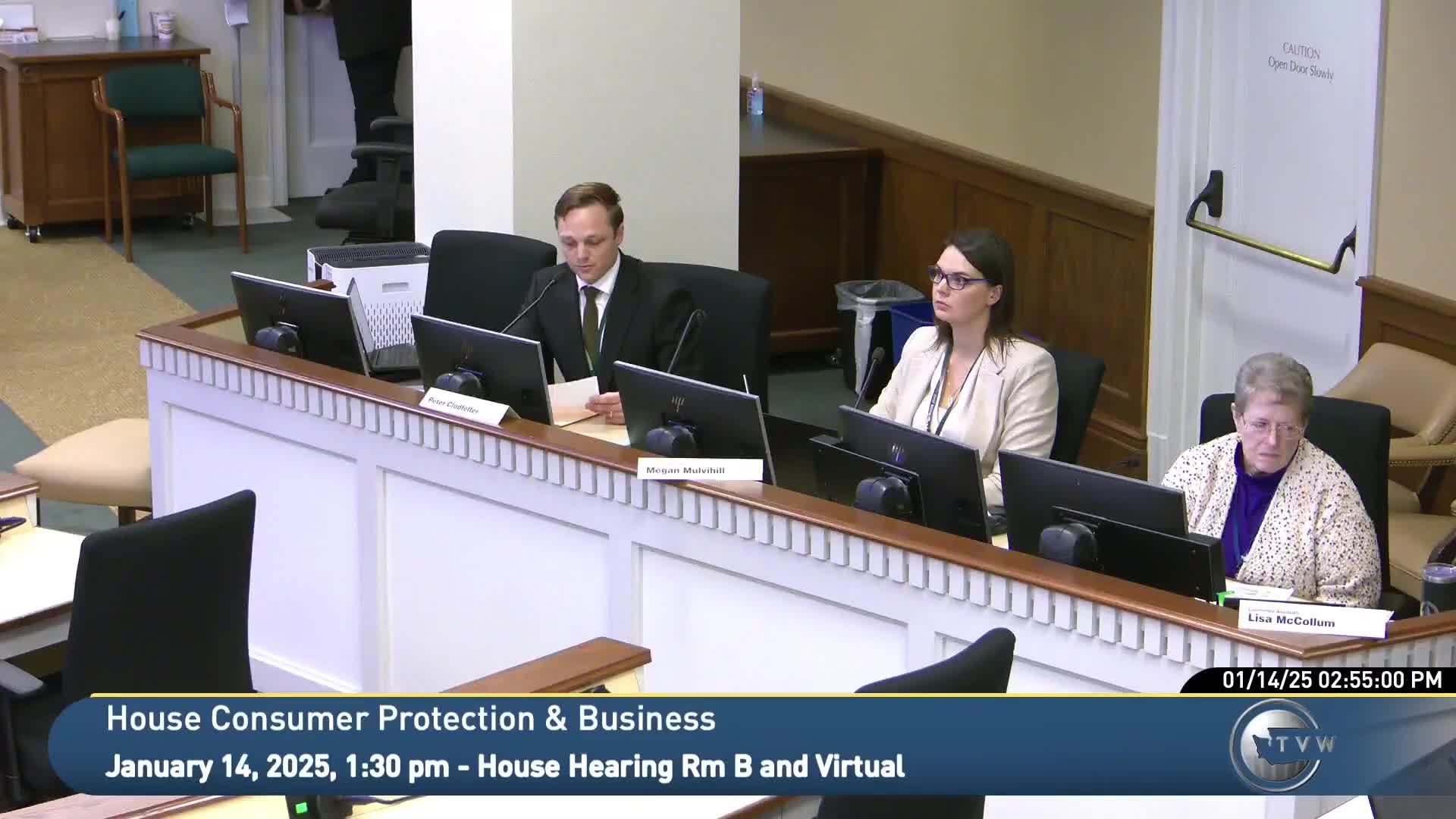DOR report: a state-level wealth tax could be administered, but valuation, compliance and enforcement pose major challenges
Get AI-powered insights, summaries, and transcripts
Subscribe
Summary
The Department of Revenue's November 2024 report to the Legislature said Washington could administer a wealth tax if lawmakers enact one, but international and U.S. experience show valuation of nonmarket assets, evasion and taxpayer mobility create enforcement and revenue reliability risks.
The Washington State Department of Revenue presented its November 2024 wealth-tax research to the House Finance Committee on Jan. 14, concluding that while the department believes a wealth tax could be administered in Washington, significant valuation, compliance and enforcement challenges would accompany any such law.
Steve Ewing, legislative and external affairs liaison for DOR, summarized the department’s work: staff reviewed international experience, surveyed other jurisdictions, consulted tax administrators abroad and assessed administrative requirements. "If the legislature proceeds with a wealth tax proposal, it should carefully consider factors such as compliance, valuation, tax planning, mobility and evasion," Ewing said.
Why this matters: several high-profile proposals and the governor's budget earlier this year referenced wealth taxes. A state-level wealth tax would raise issues distinct from current Washington taxes—particularly how to value and verify financial intangibles, how to audit high-net-worth taxpayers, and how to measure enforcement effectiveness and revenue reliability.
Key points from DOR’s report:
- International and U.S. experience: DOR noted countries that currently levy or have levied wealth-like taxes (Argentina, Belgium, Colombia, Italy, the Netherlands, Norway, Spain, Switzerland and Uruguay) and others that repealed wealth taxes (France, Sweden and others). Several recent U.S. proposals (California, Hawaii, Illinois, New York) were reviewed; no U.S. state has successfully enacted and sustained a broad-based wealth tax at the state level as of the department’s report.
- Administrative hurdles: jurisdictions told DOR that valuing nonmarketable assets is the top administrative challenge, and tax evasion is the primary enforcement challenge. Respondents recommended electronic filing, strong audit and verification resources, and well-defined valuation methods—market valuation for publicly traded assets and formulaic methods for nonmarketable assets where appropriate.
- Tax design considerations: DOR said any Washington design should focus on assets that can be fairly and reliably valued, codify valuation approaches in statute or rule, set a high exemption threshold to protect liquidity for taxpayers, and ensure sufficient audit resources. DOR noted its estate-tax and capital gains analysis experience provides a partial template but is not a perfect analogue.
- Revenue and compliance uncertainty: the department emphasized that taxpayer mobility and tax planning could reduce revenue and complicate compliance estimates. Responses from other countries indicated compliance rates varied and, in many cases, were not reported or were based on national-level enforcement approaches that differ from state administration.
DOR concluded it could administer a wealth tax if enacted but warned that valuation rules, enforcement capacity and risk of evasion or migration would need to be addressed in statute and budgetary planning. Committee members asked about likely staffing and cost estimates for administration; DOR referred committee members to prior bills considered in 2023 for fiscal-note estimates and said actual requirements would depend on the policy design.
DOR placed its full report in the committee’s electronic bill book and recommended lawmakers weigh compliance and valuation risks when considering wealth-tax proposals this session.
